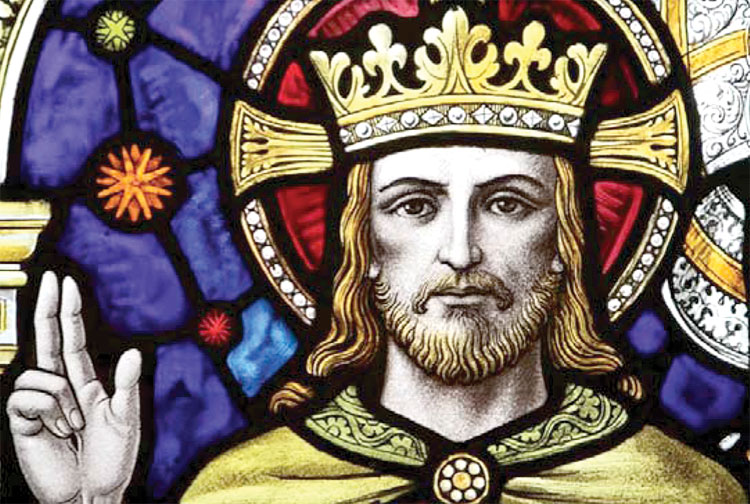When Zechariah is in the Holy Place burning incense, the angel Gabriel appears to announce that Zechariah and Elizabeth will have a son. Luke records that Gabriel appeared on the “right side” of the altar of incense (Lk 1.11). Why do we need to know this? Wouldn’t it be sufficient simply to record that Gabriel appeared and spoke to Zechariah and leave out the details of where he was in the Holy Place? Apparently not. This bit of information must be important.
The altar of incense was the piece of furniture placed right outside of the veil of the Holiest Place. In the instructions for making the golden altar of incense, a connection is made between this altar and the ark of the covenant, specifically the “cover” of the ark (sometimes translated “mercy seat;” cf. Ex 30.6). The connection between the two was so close that the author of Hebrews has the altar of incense inside the Holiest Place (Heb 9.3). The reason for this is that a priest ascended from the Holy Place into the Holiest Place, the throne of God, in the cloud of incense that was burned on that altar. What was pictured in the daily morning and evening offering of incense was embodied on the Day of Atonement/Coverings when the high priest would enter behind the veil with the cloud of incense “to cover the mercy seat” (Lev 16.12-13). God was enthroned above the cover/mercy seat of the ark of the covenant.
Standing on the right side of the altar of incense was to be on the right hand of the throne of God. Gabriel stands in “the presence of God” (Lk 1.19). What is an angel doing at the right hand of God? Further, what does this have to do with the gospel of Jesus Christ?
The story of angels and their relationship to God and man begins where it all begins: in the Garden. Man, in his newly created infancy, was created “a little lower than the angels” or “for a little while lower than the angels” (Ps 8.5; Heb 2.7). Man was under the authority of and under the tutelage of angels. The first angel sent to man to guide him appeared in the form of a serpent and led man into sin. This kept the creation under angelic rule and man under angelic tutelage. This is one reason angels are so prevalent throughout the time before the Son’s incarnation.
Angels guard the Garden. Angels appear to and guide Abraham. The angel of YHWH leads the children out of Egypt and through the wilderness. Angels delivered the Law, and the Law itself was angelic tutelage (a paidagogos; Gal 3.15-29, see esp. 3.19). When Daniel prays, we discover that angels are ruling and warring over nations (Dan 9). In the beginning of Luke, angels are bringing messages from God.
Their time is almost up. God created man to rule the creation. Sin put up a roadblock to rule, so the angels kept their position until a man, a faithful Adam, would come and assume the rule of the creation as God intended. At the beginning of Luke they are rejoicing because their mission is almost over. They are announcing the Man to come to whom they will gladly yield rule so that God’s intention for the creation can be put back fully on track and completed.
Hebrews 1—2 celebrates this fact that Jesus is greater than the angels. He is the one for whom the angels and all of creation has been looking. He is the man who will rule the creation.
What Hebrews says explicitly, Luke shows us in literary form. Luke begins with Gabriel on the right side of the altar of incense and ends with Jesus ascending. Jesus is taking the place of the angels. A man now rules. Finally, we can get about the business in earnest of doing with this creation what God intended from the beginning.
Understanding this transition between angelic rule and man’s rule is not the playground of theologians but the battleground of every Christian. The man, Christ Jesus, rules the creation so that we, in him, can complete our God-given mission in creation. In his exaltation to rule, we now have the power to rule over this creation.
This begins with the little piece of creation that each one of us has: our own bodies. We are given everything that we need to rule over our bodies. Paul says as much in Romans 6. Sin shall not have dominion over you, so don’t yield to it.
As God adds to our responsibilities over creation giving us jobs, spouses, children, and other responsibilities, he is expecting that all of these be arranged properly under the lordship of Christ. These are not the “next level” of the Christian life, an added extra for those who want to be super-Christians, an addendum to the gospel. These are nothing but the normal Christian life and mission.
Christ reigns over the creation so that we may reign with him. Be faithful as kings and queens in the kingdom.
















